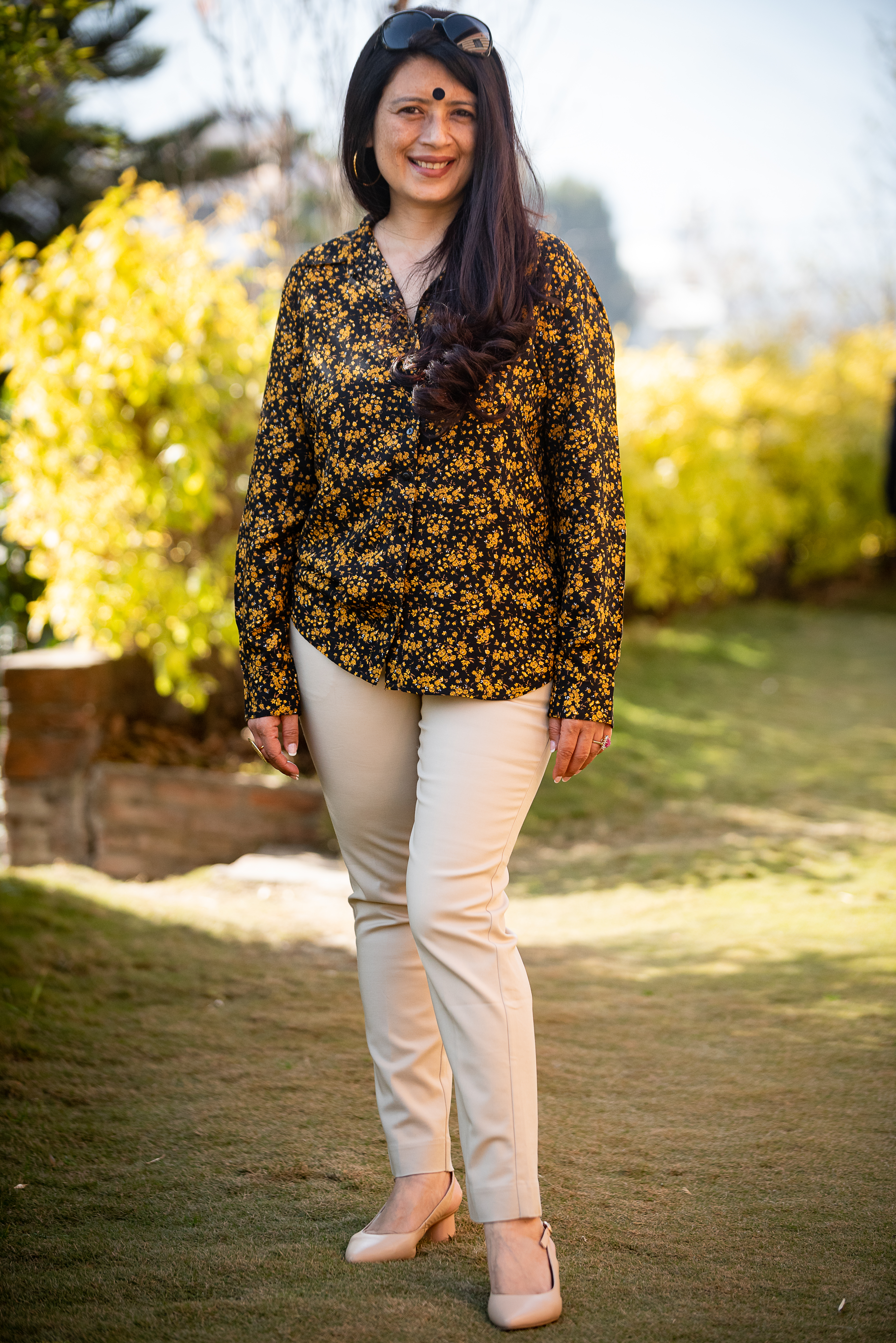Put girls and women at the center stage of each sector
Three ways to realize the vision:
1) Devise innovative programs and work with government policy-making bodies and mechanisms dealing with girls and women.
2) Work and connect with the youth across all the provinces.
3) Give space and create a positive path for intergenerational dialogues and conversations.
As a nation, we have made minimal progress in ensuring that girls and women take up leadership roles—be it in politics or in general. We can hear this rhetoric of gender equality during party conventions and political speeches, but when implementing changes, the patriarchal mindset still plays a key role. Over and again we are bypassed, no matter how qualified we are. But blaming the system will not take us far. I believe in being the change if we are to see the change.
So I want to see a Nepal where girls and women take charge, in the process of making Nepal an equitable society with the youth, irrespective of their gender, at the lead.
What we have at Women LEAD Nepal is a powerful tool providing young women the skills, support, and opportunities to become leaders and change-makers in their schools, communities, nation, and the world. Each year we work with 50 young individuals in two different courses: Leadership, Education, Advocacy and Development: LEAD Course, and Young Women’s Political Leadership Institute: YWPLI Course. I have been super impressed with how aware and committed the youth of today are. They have the willingness to explore and learn. Their curiosity is exemplary, and it is a driving force to help us develop innovative, powerful courses. Through courses like these, I hope we can set an example.
But our efforts can’t succeed unless we collaborate with policy-making bodies. There is a disconnect between the need and the vision. I would like to work within the government system where we find a path to integrate the course and the result. Short-term solutions are meaningless. Nepal needs to have a 10-year plan to build a system and set of policies that cater to young girls and women who are future leaders in any chosen field. Each policymaker should visualize key positions within the government bodies being held by women.
Also read: Vijay Lama: See Nepal as one of the ‘leading nations’
I dream of a better Nepal where we rise beyond complaints and pessimism. An internalization of who we are is a must, but accepting individual differences is the key. We lack intergenerational debates and discussions. The culture of sharing experiences without the feeling of intimidation is rare; hence there is a huge gap between generations. This has created an environment of mistrust. So each generation needs to be given space for learning and for improvising a common goal. Creating an allyship is the key for this purpose, and in order to build a culture of mentorship to reach that common goal.
The youth of today are exceptionally smart. They know how to question and hold individuals accountable. This is beautiful. Now what would be even more attractive is to mix this talent with experience. Hence my persistent focus on intergenerational dialogue. At times we become too focused on individual narratives, failing to critically analyze why that narrative is so powerful. The intersectional, intergenerational debate and the discussion on our age-old customs and practices is the need of the day for Nepal. The anger, frustration, and questions are evident but all these need to be answered for us to prosper into a better-informed society. Once we create that environment of trust in every layer of engagement, we can chart a constructive path ahead.
My vision is to keep on working till we come to that common path where we not only create gender and youth inclusive policies, but also directly implement them from the local to central level in a transparent, accountable, and result-oriented manner.

Quick Questions:
1. What is the worst stereotype of Nepali women?
Occupational hierarchy: assumption that if you are a woman you are a deputy.
2. Who is one woman leader you look up to?
Mahua Moitra, Indian Member of Parliament, Lok Sabha. She is politically affiliated to the All India Trinamool Congress (AITC).
3. One quote you live by.
“Do the best you can until you know better. Then when you know better, do better.” - Maya Angelou












